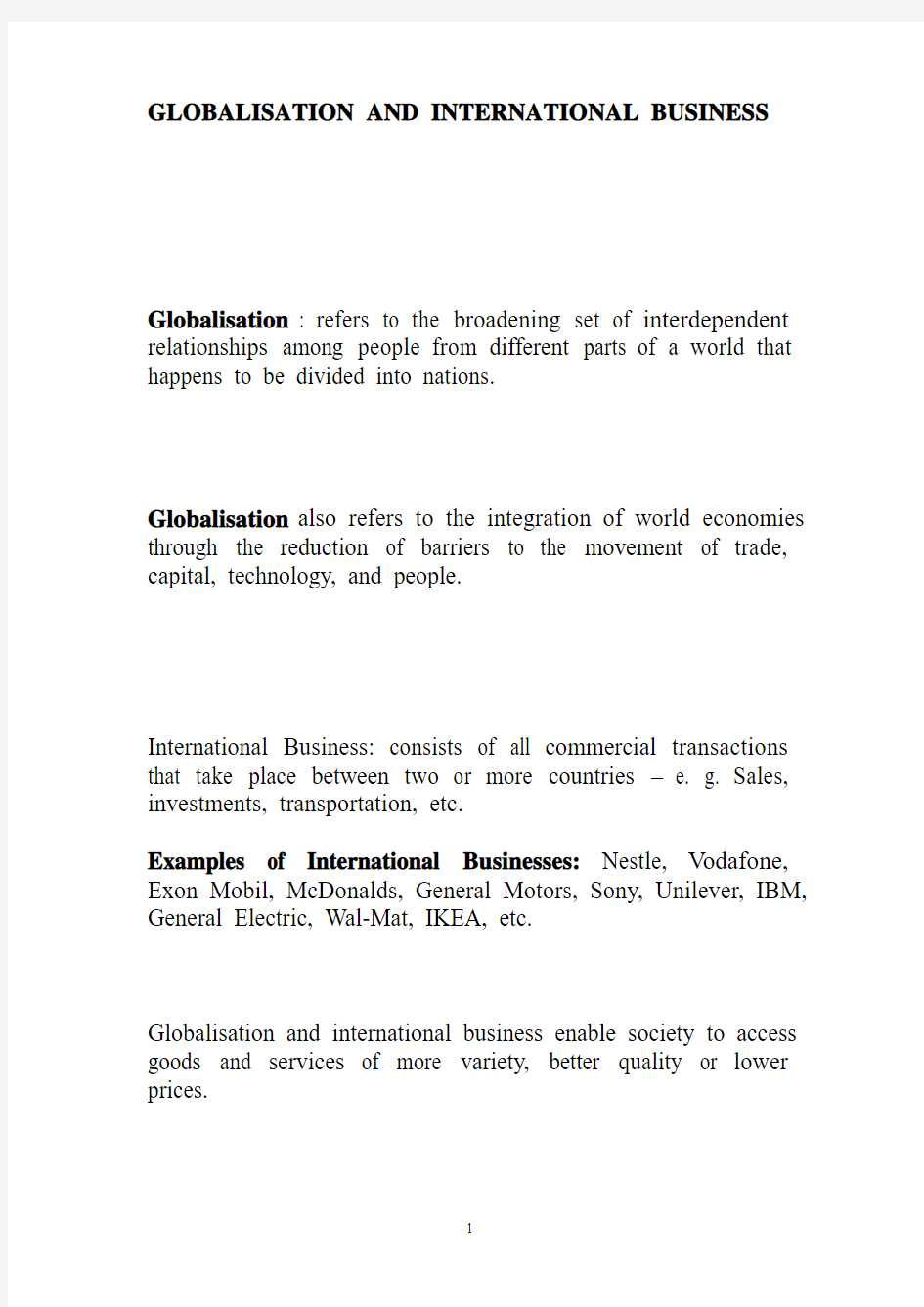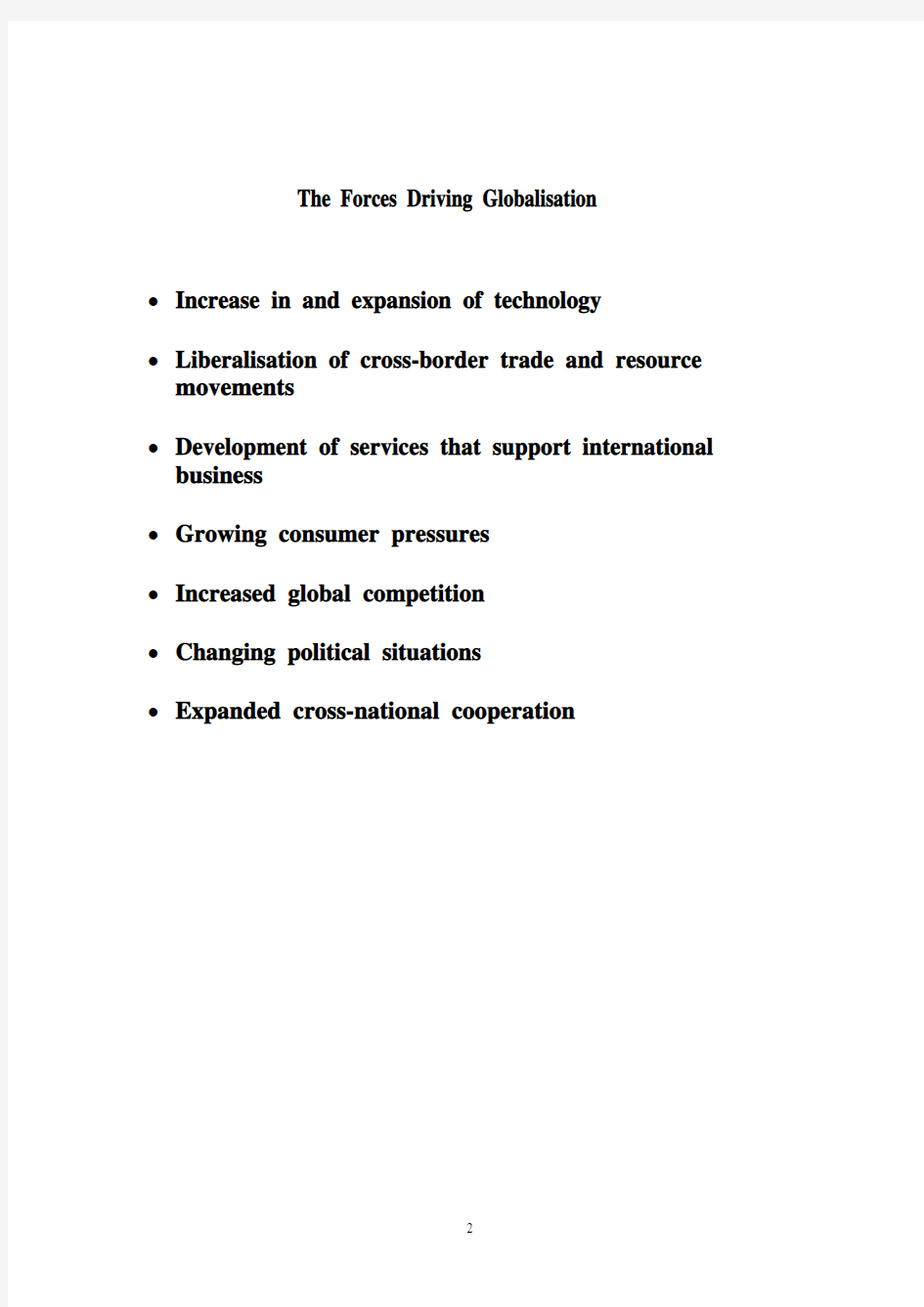GLOBALISATION AND INTERNATIONAL BUSINESS


GLOBALISATION AND INTERNATIONAL BUSINESS Globalisation: refers to the broadening set of interdependent relationships among people from different parts of a world that happens to be divided into nations.
Globalisation also refers to the integration of world economies through the reduction of barriers to the movement of trade, capital, technology, and people.
International Business: consists of all commercial transactions that take place between two or more countries –e. g. Sales, investments, transportation, etc.
Examples of International Businesses: Nestle, Vodafone, Exon Mobil, McDonalds, General Motors, Sony, Unilever, IBM, General Electric, Wal-Mat, IKEA, etc.
Globalisation and international business enable society to access goods and services of more variety, better quality or lower prices.
The Forces Driving Globalisation
?Increase in and expansion of technology
?Liberalisation of cross-border trade and resource movements
?Development of services that support international business
?Growing consumer pressures
?Increased global competition
?Changing political situations
?Expanded cross-national cooperation
Antiglobalisation
International Businesses are the major agents and beneficiaries of globalisation and, as such, attract both approbation and condemnation. Critics of globalisation claim that:
?Countries lose sovereignty
?The resulting growth hurts the environment
?Some people lose both relatively and absolutely (i.e. growing income inequality between developed and developing countries)
Why Companies Engage in International Business Companies go global because they want to create value for their organisations. Let us consider some specific ways in which firms can create value by going global:
?Expanding sales
?Acquiring resources
?Minimising risk
Modes of Operation in International Business
When pursuing international business, an organisation must decide on a suitable mode of operation from several operating modes:
?Importing and exporting
?Tourism and transportation
?Licensing and franchising
?Turnkey operations
?Management contracts
?Direct and portfolio investment (including joint ventures)
Functions of Operations in International Business
In addition to choosing a suitable mode of operation, an international business must also decide on the most appropriate strategy to be used in international markets. The main areas of focus are:
?Marketing
?Global manufacturing and supply-chain management
?Accounting
?Finance
?Human resources
CORPORATE GOVERNANCE
?Ethics
?Corporate social responsibility (CSR)
?Bribery and Corruption
?Money Laundering
